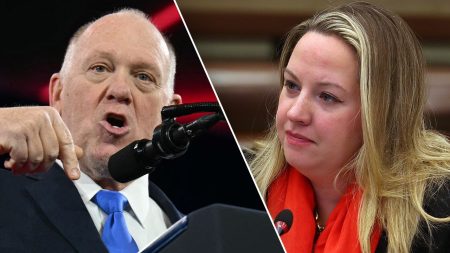The Social Security Fairness Act, recently passed by Congress and sent to President Biden’s desk, aims to repeal the Windfall Elimination Provision (WEP) and the Government Pension Offset (GPO), two rules enacted in 1980 that have long been contentious for public sector workers. These rules significantly impact the Social Security benefits received by individuals who also hold public pensions, primarily impacting professions like law enforcement, firefighting, teaching, and postal service. Supporters of the repeal, including law enforcement groups and numerous members of Congress, argue that the WEP and GPO unfairly penalize dedicated public servants who have contributed to both public pension systems and Social Security through other employment. They view the repeal as a long-overdue correction to ensure that these individuals receive the full Social Security benefits they have earned.
The WEP and GPO were originally designed to prevent what was perceived as “double-dipping” into government funds. The WEP reduces Social Security benefits for individuals receiving public pensions, aiming to balance the fact that their Social Security contributions may have been lower due to their public service. The GPO, on the other hand, adjusts spousal benefits to reflect income from public pensions, preventing perceived overpayments from Social Security. However, critics of these provisions have argued for decades that they disproportionately affect those who have dedicated their careers to public service, resulting in significantly diminished retirement income compared to their private-sector counterparts. The repeal is seen as rectifying this perceived inequity.
The passage of the Social Security Fairness Act signifies a substantial victory for millions of public sector workers and retirees who have been advocating for its repeal for over four decades. Proponents argue that these individuals have contributed to both their public pensions and Social Security through other employment, and therefore deserve to receive the full benefits they’ve earned. They highlight that the WEP and GPO essentially penalize these individuals for their public service, leading to lower retirement income compared to similar private sector workers. The Act’s passage marks a significant acknowledgement from Congress of the need to address this long-standing issue and provide fairer treatment for public sector employees.
However, the legislation also faces substantial criticism, primarily concerning its financial impact on the already strained Social Security system. The Congressional Budget Office estimates that the Act will add $196 billion to the federal deficit over the next ten years. Critics argue that this added burden will hasten the program’s insolvency, negatively impacting the vast majority of Social Security recipients who are not affected by the WEP and GPO. They contend that the repeal represents a costly fix for a relatively small group of beneficiaries, shifting the financial burden onto the broader population and jeopardizing the long-term sustainability of the entire Social Security system.
The debate surrounding the Social Security Fairness Act highlights the complex and often conflicting considerations inherent in Social Security reform. While proponents argue for fairness and equitable treatment for public sector workers, critics emphasize the importance of fiscal responsibility and the long-term viability of the program. The considerable cost associated with the repeal raises questions about the prioritization of different beneficiary groups and the potential trade-offs between addressing specific inequities and ensuring the overall health of the Social Security system. The legislation’s passage underscores the ongoing challenge of balancing the needs of various stakeholders within a system facing increasing financial pressures.
Ultimately, the Social Security Fairness Act represents a significant legislative change with both immediate and long-term implications. Its impact on the financial stability of Social Security, its effects on various beneficiary groups, and its role in shaping future retirement security for public sector workers will continue to be subjects of debate and analysis in the years to come. The Act underscores the ongoing need for comprehensive Social Security reform that addresses both the specific concerns of various beneficiary groups and the broader challenges facing the program as a whole.










